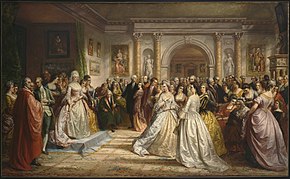
This section of the timeline of United States history concerns events from 1790 to 1819.
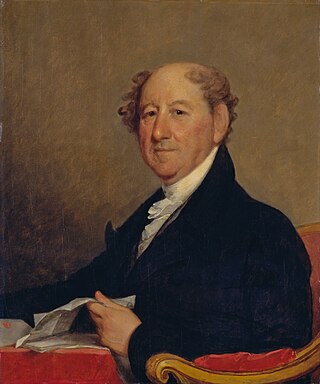
Rufus King was an American Founding Father, lawyer, politician, and diplomat. He was a delegate from Massachusetts to the Continental Congress and the Philadelphia Convention and was one of the signers of the United States Constitution in 1787. After formation of the new Congress, he represented New York in the United States Senate. He emerged as a leading member of the Federalist Party and was the party's last presidential nominee during the 1816 presidential election.

Alice Cary was an American poet, and the older sister of fellow poet Phoebe Cary (1824–1871).
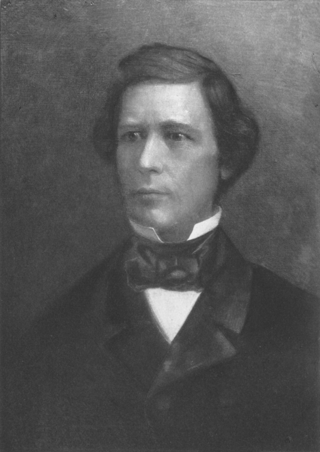
David Wilmot was an American politician and judge. He served as Representative and a Senator for Pennsylvania and as a judge of the Court of Claims. He is best known for being the prime sponsor and eponym of the Wilmot Proviso, a failed proposal to ban the expansion of slavery to western lands gained in the Mexican Cession. A notable member of the anti-slavery Free Soil Party, Wilmot later was instrumental in establishing the Republican Party in Pennsylvania.

Rufus W. Peckham was an American lawyer and jurist who served as an Associate Justice of the U.S. Supreme Court from 1895 to 1909, and is the most recent Democratic nominee approved by a Republican-majority Senate. He was known for his strong use of substantive due process to invalidate regulations of business and property. Peckham's namesake father was also a lawyer and judge, and a U.S. Representative. His older brother, Wheeler Hazard Peckham (1833–1905), was one of the lawyers who prosecuted William M. Tweed and a failed nominee to the Supreme Court.

Charles Fenno Hoffman was an American author, poet and editor associated with the Knickerbocker Group in New York.

Rufus Wilmot Griswold was an American anthologist, editor, poet, and critic. Born in Vermont, Griswold left home when he was 15 years old. He worked as a journalist, editor, and critic in Philadelphia, New York City, and elsewhere. He built a strong literary reputation, in part due to his 1842 collection The Poets and Poetry of America. This anthology, the most comprehensive of its time, included what he deemed the best examples of American poetry. He produced revised versions and similar anthologies for the remainder of his life, although many of the poets he promoted have since faded into obscurity. Many writers hoped to have their work included in one of these editions, although they commented harshly on Griswold's abrasive character. Griswold was married three times: his first wife died young, his second marriage ended in a public and controversial divorce, and his third wife left him after the previous divorce was almost repealed.
Frances Harriet Whipple Green McDougall (1805–1878) was an abolitionist, poet, novelist, editor, botanist, spiritualist medium, and advocate of women's, voters', and workers' rights. In contrast to many other 19th-century women writers, throughout most of her adult life she earned her living as an author; at the same time she often donated her writing for causes she believed in, such as the abolition of slavery.
Roger Griswold was a nineteenth-century lawyer, politician and judge from Connecticut. He served as a member of the United States House of Representatives, judge of the Connecticut Supreme Court and the 22nd governor of Connecticut, serving as a Federalist.

Richard Henry Wilde was a United States representative and lawyer from Georgia.

Elizabeth Fries Ellet was an American writer, historian and poet. She was the first writer to record the lives of women who contributed to the American Revolutionary War.

Thomas Dunn English was an American Democratic Party politician from New Jersey who represented the state's 6th congressional district in the House of Representatives from 1891 to 1895. He was also a published author and songwriter, who had a bitter feud with Edgar Allan Poe. Along with Waitman T. Barbe and Danske Dandridge, English was considered a major West Virginia poet of the mid 19th century.
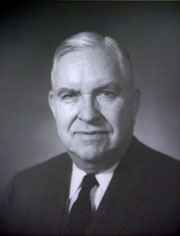
Erwin Nathaniel Griswold was an American appellate attorney and legal scholar who argued many cases before the U.S. Supreme Court. Griswold served as Solicitor General of the United States (1967–1973) under Presidents Lyndon B. Johnson and Richard M. Nixon. He also served as the dean of Harvard Law School for 21 years. Several times he was considered for appointment to the U.S. Supreme Court. During a career that spanned more than six decades, he served as member of the U.S. Commission on Civil Rights and as president of the American Bar Foundation.

The Poets and Poetry of America was a popular anthology of American poetry collected by American literary critic and editor Rufus Wilmot Griswold. It was first published in 1842 and went into several editions throughout the 19th century.
Charles Chauncey Burr (1817–1883) was an American journalist, author and publisher. A native of Maine, he became an intimate friend of Edgar Allan Poe and his family, and published a number of magazines and newspapers.
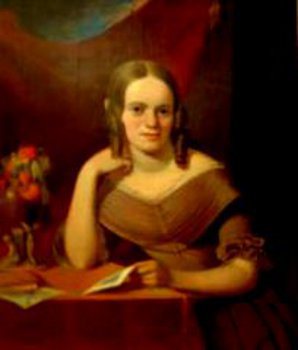
Juliet Hamersley Lewis Campbell was an American poet and novelist.
The Entry is a 1789 cartoon that depicted George Washington riding a donkey into New York. It was first distributed during the time of Washington's inauguration as the first president of the United States. Many accounts say it was "hawked on the streets of the capitol". No copies of this work have been found since at least 1933.

Julia Rush Cutler Ward was an American occasional poet. One of her poems is preserved in Rufus Wilmot Griswold's Female Poets of America (1878).
Margaret L. Bailey was an American anti-slavery writer, poet, lyricist, as well as newspaper editor and publisher. She served as editor of The Youth's Monthly Visitor, a children's magazine, and as the publisher of The National Era, an anti-slavery journal.
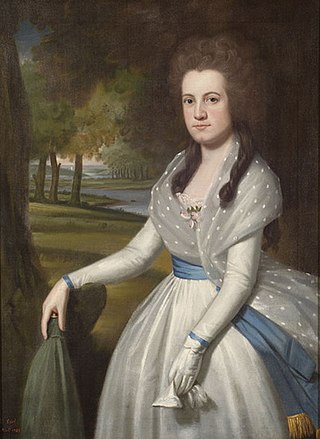
Mary Ann Wolcott Goodrich (1765–1805) was an American socialite in New York, Philadelphia, and Washington, D.C., moving with her husband Chauncey Goodrich as he served as a Representative and a Senator between 1795 and 1813. Her viewpoints were influential in the affairs of state, business and education.
